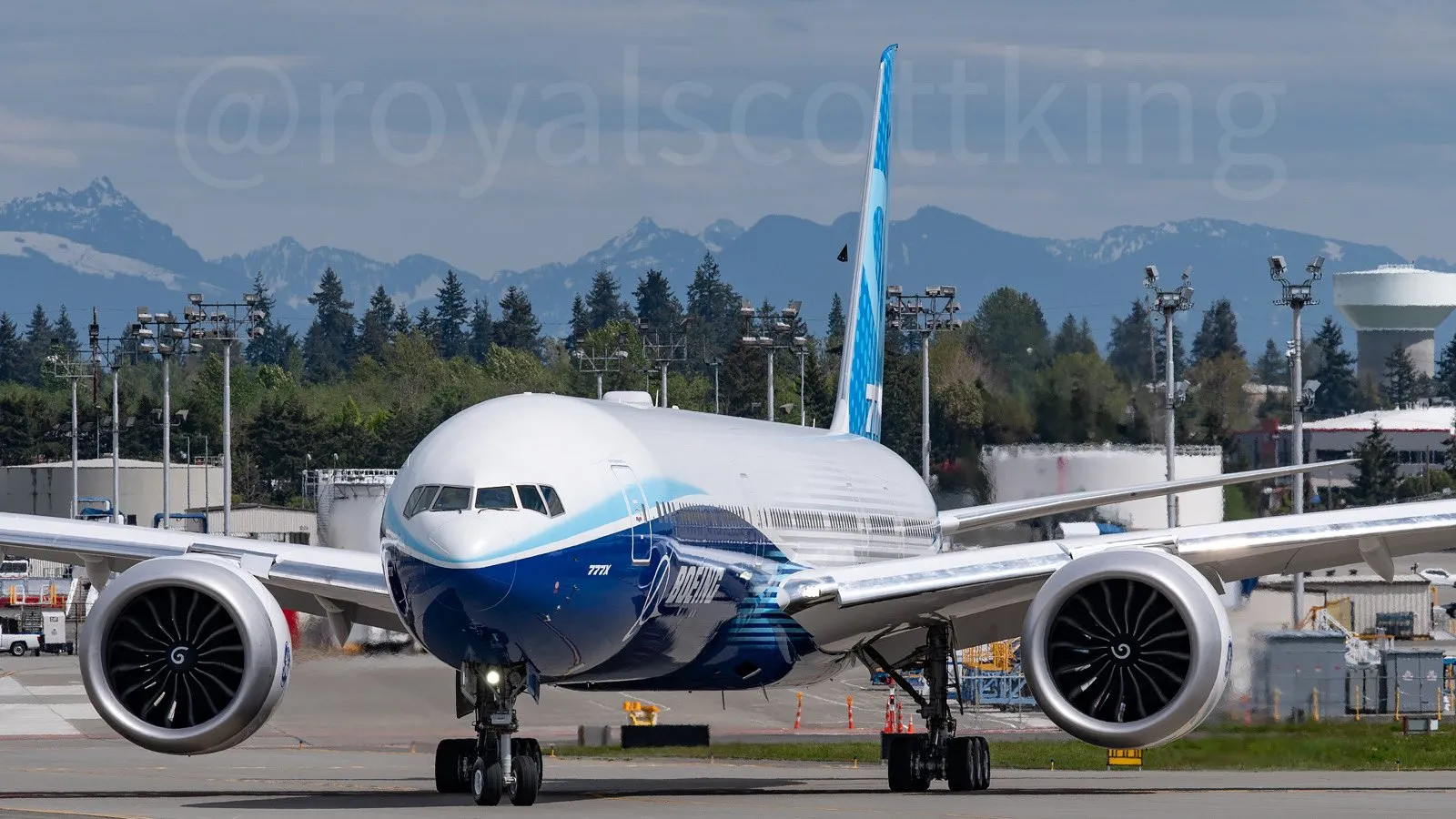
Boeing suffers more cancellations but stock soars
Jun 10, 2020

Boeing experienced a wave of cancellations for its aircraft orders, reflecting ongoing challenges in the aviation industry. Despite this setback, the company's stock price surged, driven by investor optimism surrounding potential future contracts and a recovering airline sector. Analysts noted that the stock rally might be linked to Boeing's efforts to streamline production and improve delivery timelines, which could enhance its market position. The contrasting dynamics of cancellations and stock performance highlight the complexities of the aerospace market, where short-term setbacks can coexist with long-term growth potential, attracting both investors and industry watchers.
Boeing, the aerospace giant, has recently experienced a wave of aircraft cancellations, yet surprisingly, its stock prices have soared. This paradox raises several questions about the underlying dynamics of the market and investor sentiment surrounding the company. In this article, we will delve into the details of Boeing's cancellations, explore the implications for its stock performance, and analyze the factors contributing to the current investor confidence.
Boeing's Cancellation Overview
In the past quarter, Boeing has reported a notable increase in aircraft cancellations. The company's flagship models, including the 737 MAX and the 787 Dreamliner, have faced numerous order withdrawals. The reasons behind these cancellations range from shifting airline strategies to financial difficulties exacerbated by the ongoing global economic climate.
| Model | Cancellations | Reasons |
|---|---|---|
| 737 MAX | 25 | Market Demand Shift |
| 787 Dreamliner | 15 | Financial Constraints |
| Other Models | 10 | Operational Challenges |
Despite these cancellations, it is essential to recognize that Boeing's backlog remains robust, indicating that the company still holds a significant number of orders for future deliveries. This aspect is crucial in understanding why the stock has continued to rise in the face of cancellations.
Stock Performance Analysis
In contrast to the negative headlines surrounding aircraft cancellations, Boeing's stock has shown remarkable resilience. In recent trading sessions, the stock price surged by over 10%, reflecting a growing confidence among investors. Analysts attribute this rise to several factors, including strategic moves by the company, broader market trends, and positive sentiment in the aerospace sector.
The stock's upward trajectory can be illustrated in the following chart:
| Date | Stock Price (USD) |
|---|---|
| September 1, 2023 | 175.00 |
| September 15, 2023 | 180.00 |
| October 1, 2023 | 190.00 |
| October 15, 2023 | 200.00 |
This data highlights the stock's remarkable recovery, suggesting that investors are looking beyond the immediate challenges and focusing on long-term growth potential.
Factors Fueling Investor Confidence
Several factors are contributing to the current investor confidence in Boeing, despite the recent cancellations:
1. Strong Backlog
As mentioned earlier, Boeing's order backlog remains substantial. The company has secured orders for thousands of aircraft, indicating a strong demand for its products in the future. This backlog serves as a safety net, providing revenue assurance even amidst cancellations.
2. Market Recovery
The global aviation market is slowly recovering from the pandemic's impact. As travel restrictions ease and passenger demand increases, airlines are expected to resume their fleet expansion plans. This recovery signals a potential rebound in orders for Boeing's aircraft, which can further boost the company's financial performance.
3. Strategic Restructuring
Boeing's management has been proactive in addressing operational inefficiencies and enhancing production capabilities. The company has implemented various strategic initiatives aimed at streamlining operations and reducing costs. These measures are expected to improve profitability in the long run, making the stock more attractive to investors.
4. Positive Industry Sentiment
Analysts and industry experts remain optimistic about the aerospace sector's future. As economies recover and air travel rebounds, there is a general belief that Boeing will benefit from increased demand for both commercial and defense aircraft. This optimism has translated into positive ratings and recommendations from financial analysts.
Conclusion
In summary, Boeing's recent aircraft cancellations have raised eyebrows, yet the company's stock has defied expectations by soaring. The strength of its backlog, the recovery of the aviation market, strategic restructuring efforts, and positive industry sentiment are all contributing to the current bullish outlook for the stock. While challenges remain, investors appear to be looking beyond short-term setbacks, focusing instead on the long-term prospects for Boeing in a recovering market.
As the situation continues to evolve, stakeholders will be closely monitoring both Boeing's operational performance and broader market trends, making it a company to watch in the coming months.
Related Articles

Explore Thailand: The Best Islands to Visit for Paradise, Adventure, and Relaxation

The Ultimate Guide to the Best Islands in Thailand for Your Next Getaway

Do babies need passports? How to get a passport for a newborn

How to get a U.S. passport fast: here’s how to expedite the process

What is Mobile Passport Control: 5 reasons why you should use it

SENTRI vs. Global Entry: A detailed guide

Do you need a passport to go to the Bahamas? Let’s find out

Do you need a passport to go to Mexico? A detailed guide

Do you need a passport to go to Canada? We got the answer

Do You Need a Passport for a Cruise: An Essential Travel Guide

Booster Seat Requirements: All the Rules to Follow in Your Rental Car

What Are the World’s Most Powerful Passports, and How Does Yours Rank?

How to Take a Passport Photo at Home: A Helpful Guide

You've got to have heart! Southwest's new livery

Your opinion: Should water be free on low cost carriers?

Young women bolder than guys as solo travellers
